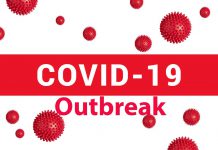The Rise of Respiratory Concerns
The Northwestern Health Unit (NWHU) is raising alarms as the region faces a significant uptick in respiratory illnesses. This increase is evident in the growing number of COVID-19 cases, hospitalizations, respiratory outbreaks in group care facilities, and community reports of respiratory illnesses. The presence of Influenza A within the catchment area adds to the concerns, signalling that respiratory diseases are making a notable impact on community health.
Health Unit’s Call for Community Action
In response to the heightened risk, the NWHU is urging the public to take preventative measures against respiratory illnesses seriously. The health body emphasizes the importance of vaccinations, advocating for eligible individuals to receive their influenza and COVID-19 vaccines promptly. The collective effort of the community plays a crucial role in safeguarding personal and public health, particularly during the respiratory illness season.
Preventative Strategies for the Public
To combat the spread of these illnesses, the NWHU suggests several proactive steps:
- Vaccination: Get up-to-date with your COVID-19 and influenza shots.
- Masking: Use well-fitted masks in indoor public spaces, prioritizing the safety of those at greater risk.
- Health Screening: Monitor for symptoms daily and stay home if you’re unwell.
- Hygiene: Frequently wash or sanitize your hands and cover coughs and sneezes.
- Surface Cleaning: Diligently clean surfaces that are regularly touched.
Guidelines for Symptomatic Individuals
For those who develop symptoms, the NWHU advises:
- Isolate at home, steering clear of vulnerable groups such as infants, the elderly, and those at higher risk until:
- Symptoms have improved for at least 24 hours, or 48 hours for gastrointestinal symptoms.
- You are fever-free without medication.
- No new symptoms emerge.
- For 10 days after symptoms onset:
- Wear a mask in all public scenarios.
- Avoid non-essential contact with those at increased risk, including visits to sensitive settings like hospitals and care homes.
- Refrain from activities that require mask removal, such as eating out in public.
Additional Resources
For comprehensive information on COVID-19 and other respiratory viruses, and protective measures, the public can access resources at the official Ontario health website at ‘Protection from COVID‑19 and other respiratory illnesses | ontario.ca’.





